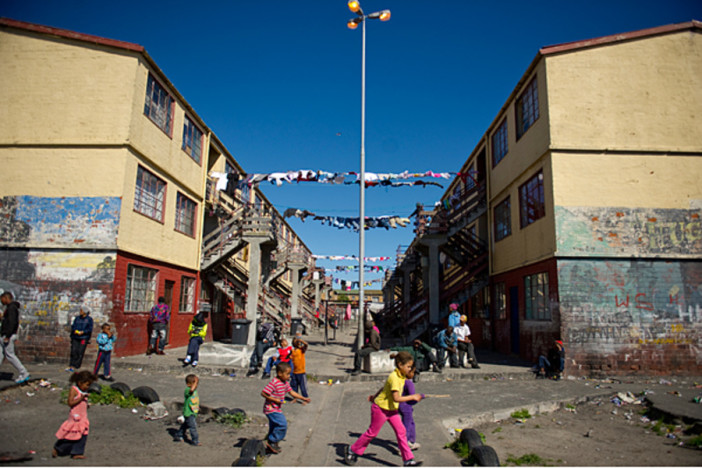“Ongoing violence is the biggest threat to victim rehabilitation in Manenberg. It is a right and not a privilege.” These words sum up a new report into the psychological and social impact of gang violence on the beleaguered residents of Manenberg, caught in daily crossfire between warring gangs. The study, released by the Trauma Centre for Survivors of Violence and Torture, found that Manenberg residents are being tortured by the consistent gang violence in the area.
In 2013, at the height of gang violence, the Minister of Social Development, Albert Fritz lobbied for an intervention to cater for the victims and survivors of gang violence in Manenberg. This lead to a joint effort by the Trauma Centre, Manenberg Development Co-ordinating Structure and the Western Cape Department of Social Development to provide victim rehabilitation services to the community. Within eight months, more than 7000 residents and workers accessed the services.
The Trauma Centre’s, Tatendo Mawoya says the research is based on documentary data extracted from client files as well as the experience of stakeholders who participated in the intervention from September 2013 to May 2014.
“We need a guarantee of non-repetition. According to international and local legislation, it is important that the state guarantees this and that is not the case in Manenberg,” Mawoya told VOC News.
The Trauma Centre will continue to support the community of Manenberg but on a macro level, according to Mawoya, one of the recommendations of the report is to lobby for a Commission of Inquiry into efforts to end gang violence in Manenberg along with an inter-sectoral collaboration. Mawoya believes that people are currently working individually within the community.
Echoing those sentiments was panellist, Professor of Psychology at Stellenbosch University, Ashraf Kagee. During his briefing session at the launch, Kagee explained that a concerted effort needs to be put on eradicating the scourge of gangsterism as opposed to teaching people how to better adapt to its environment.
“While this is a very important report, one of the issues I raised when I read the first version of the report was that it’s point of departure really rested on the assumption that gang violence is a feature of Manenberg and that we need to assist people to adapt to living under conditions of violence, intimidation and fear. I wanted to go a step back first before we do that and say that perhaps we should look at whether gang violence is something we should accept and then address the issue of how to eradicate gang violence,” Kagee said.
Kagee, a respondent on the panel, suggested that people from different disciplines, including policy makers and the police and an incumbent multi-sectoral approach needs to be taken when looking at ways gang violence can be eradicated.
“I think we need some proper political leadership to address this. Sending the army in once in a while is not going to be helpful. This is a long standing political, sociological and community issue which also has historical routes. We must remember that the members of gangs today are descendants of people who were uprooted from their homes during the Apartheid era. So, what we see now is a consequence of a very complicated set of circumstances,” Kagee added. VOC (Ra’eesah Isaacs)






 WhatsApp us
WhatsApp us 

